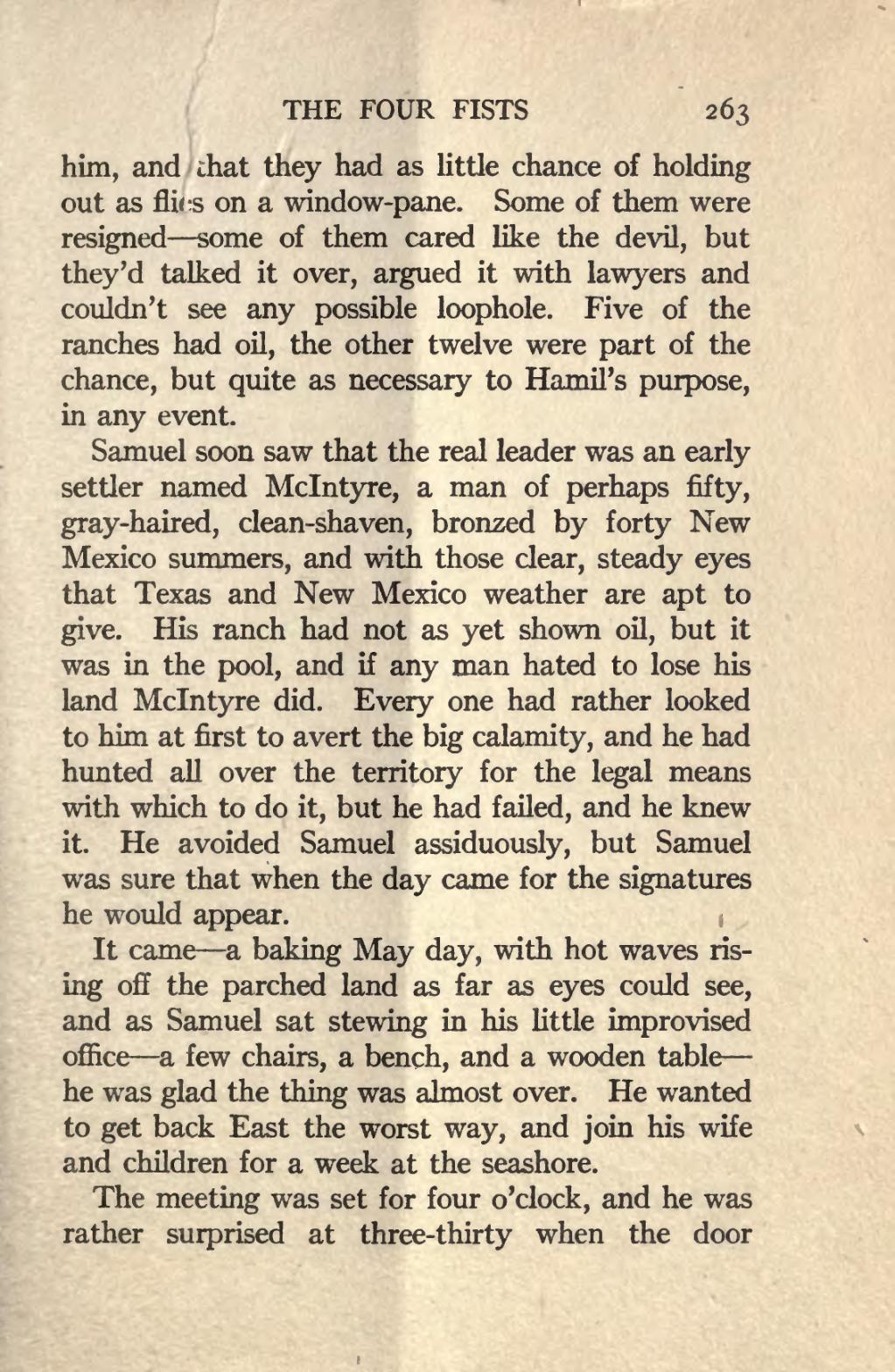him, and that they had as little chance of holding out as flies on a window-pane. Some of them were resigned—some of them cared like the devil, but they'd talked it over, argued it with lawyers and couldn't see any possible loophole. Five of the ranches had oil, the other twelve were part of the chance, but quite as necessary to Hamil's purpose, in any event.
Samuel soon saw that the real leader was an early settler named McIntyre, a man of perhaps fifty, gray-haired, clean-shaven, bronzed by forty New Mexico summers, and with those clear steady eyes that Texas and New Mexico weather are apt to give. His ranch had not as yet shown oil, but it was in the pool, and if any man hated to lose his land McIntyre did. Every one had rather looked to him at first to avert the big calamity, and he had hunted all over the territory for the legal means with which to do it, but he had failed, and he knew it. He avoided Samuel assiduously, but Samuel was sure that when the day came for the signatures he would appear.
It came—a baking May day, with hot wave rising off the parched land as far as eyes could see, and as Samuel sat stewing in his little improvised office—a few chairs, a bench, and a wooden table—he was glad the thing was almost over. He wanted to get back East the worst way, and join his wife and children for a week at the seashore.
The meeting was set for four o'clock, and he was rather surprised at three-thirty when the door
